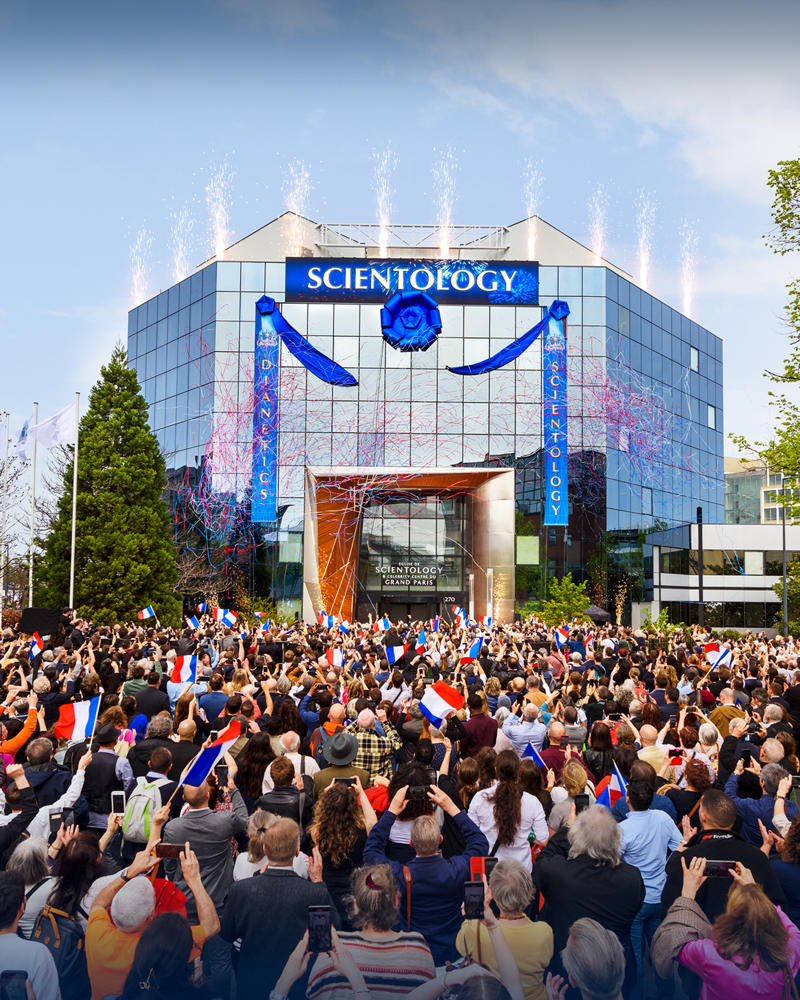Famous Fans of Scientology: Celebs and Their Confidence Trip
Famous Fans of Scientology: Celebs and Their Confidence Trip
Blog Article
The Advancement of Scientology: From Past to Existing
The history of Scientology is a complex tapestry woven with the strings of its founder's ideas, the Church's trip with debate, and its contemporary methods. From the enigmatic origins of L. Ron Hubbard's trainings to the modern-day techniques of the Church, tracing the advancement of Scientology supplies an unique home window into a globe that continues to intrigue and polarize.
Beginnings and Creator of Scientology
Started in the 1950s by science fiction author L. Ron Hubbard, Scientology became a brand-new religious motion with beginnings in self-help practices and spiritual expedition. Hubbard's mentors combined elements of Eastern ideology, science fiction, and self-improvement techniques to develop a distinct idea system. Central to Scientology is the concept of the human spirit, called the Thetan, which is immortal and magnificent in nature. Hubbard claimed that via Scientology practices, people could free themselves of adverse previous experiences (engrams) and attain spiritual knowledge.

Growth and Expansion of the Church
The Church of Scientology has experienced considerable development and development worldwide since its inception in the 1950s under the management of L. Ron Hubbard. Today, the Church has a presence in over 160 countries, with greater than 11,000 churches, objectives, and associated companies. This growth is sustained by a dedicated worldwide network of Scientologists that are devoted to the trainings and techniques of the faith.
Among the vital factors contributing to the growth of Scientology is its extensive outreach programs and community campaigns. The Church actively participates in social betterment programs, drug avoidance projects, human civil liberties campaigning for, and catastrophe alleviation efforts. These activities not only elevate recognition concerning Scientology however likewise demonstrate the Church's commitment to boosting culture.
In Addition, the Church's use modern-day technology and media systems has actually played a crucial duty in increasing its reach. With a solid online presence, consisting of internet sites, social media sites networks, and streaming services, Scientology has had the ability to attach with a more comprehensive target market and spread its message internationally. As the Church continues to adapt and evolve to the transforming world, its development and growth show no indicators of decreasing.
Criticisms and disputes
Among its global growth and outreach campaigns, Scientology has dealt with a substantial amount of disputes and objections from various quarters. Furthermore, Scientology's deceptive nature and strict policies relating to dissent have actually raised issues concerning freedom of speech and individual autonomy.
Moreover, the Church has actually been embroiled in lawful fights and scandals, with accusations varying from tax obligation evasion to human rights abuses (Scientology). The high-profile nature of a few of these conflicts has actually further sustained public analysis and adverse perceptions of Scientology. Critics have likewise directed to the organization's lack of openness and responsibility, specifically concerning its funds and therapy of participants
In feedback to these objections, Scientology has actually frequently vehemently denied any wrongdoing and depicted itself as a sufferer of discrimination and prejudice. Nevertheless, the disputes bordering the Church proceed to continue, shaping its public picture and online reputation in the eyes of several.
Modern Practices and Beliefs
Just how has Scientology adapted its practices and ideas in reaction to modern-day societal adjustments and challenges? Scientology, started by L. Ron Hubbard in the 1950s, has evolved over the years to attend to contemporary problems while remaining real to its core tenets.
In terms of beliefs, Scientology has kept its essential concepts while interpreting them in means that resonate with contemporary fans. The emphasis on individual development, spiritual advancement, and the search of a higher browse around this site state of existence continues to be central to Scientology's mentors. However, the organization has actually also integrated conversations on psychological health, mindfulness, and wellness to resolve the mental and psychological difficulties widespread you could try this out in today's society.
Effect on Culture and Fans
Having adapted its techniques and ideas to line up with contemporary fads and difficulties, Scientology's impact on culture and its fans has actually been profound and far-reaching. In today's globe, Scientology remains to impact society with numerous initiatives targeted at attending to social problems, advertising individual growth, and advocating for human rights. The Church of Scientology engages in substantial neighborhood outreach programs, academic campaigns, and catastrophe alleviation initiatives, showing a dedication to making a favorable distinction worldwide.
In addition, Scientology's impact on its fans appears in the means it forms their worths, actions, and ideas. Followers typically credit the religious beliefs with offering them a sense of purpose, personal development, and spiritual fulfillment. The tight-knit area cultivated by Scientology likewise plays a considerable role in the lives of its participants, supplying assistance, assistance, and a sense of belonging.
Verdict
To conclude, Scientology has actually developed considerably since its beginning by L. Ron Hubbard in the 1950s. The Church has grown right into a worldwide organization with a substantial following, in spite of facing objections and disputes. Modern methods and beliefs remain to form the Church's effect on culture and its basics followers, highlighting the continuous advancement of Scientology as a religious motion.
The background of Scientology is a complex tapestry woven with the threads of its owner's beliefs, the Church's journey with controversy, and its present-day techniques. From the enigmatic beginnings of L. Ron Hubbard's teachings to the contemporary techniques of the Church, mapping the evolution of Scientology offers an unique window into a world that proceeds to intrigue and polarize.

Modern methods and ideas continue to shape the Church's influence on society and its fans, highlighting the recurring development of Scientology as a spiritual movement.
Report this page